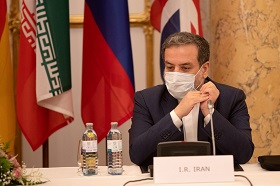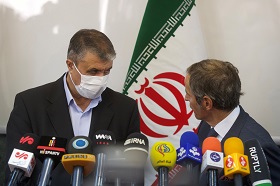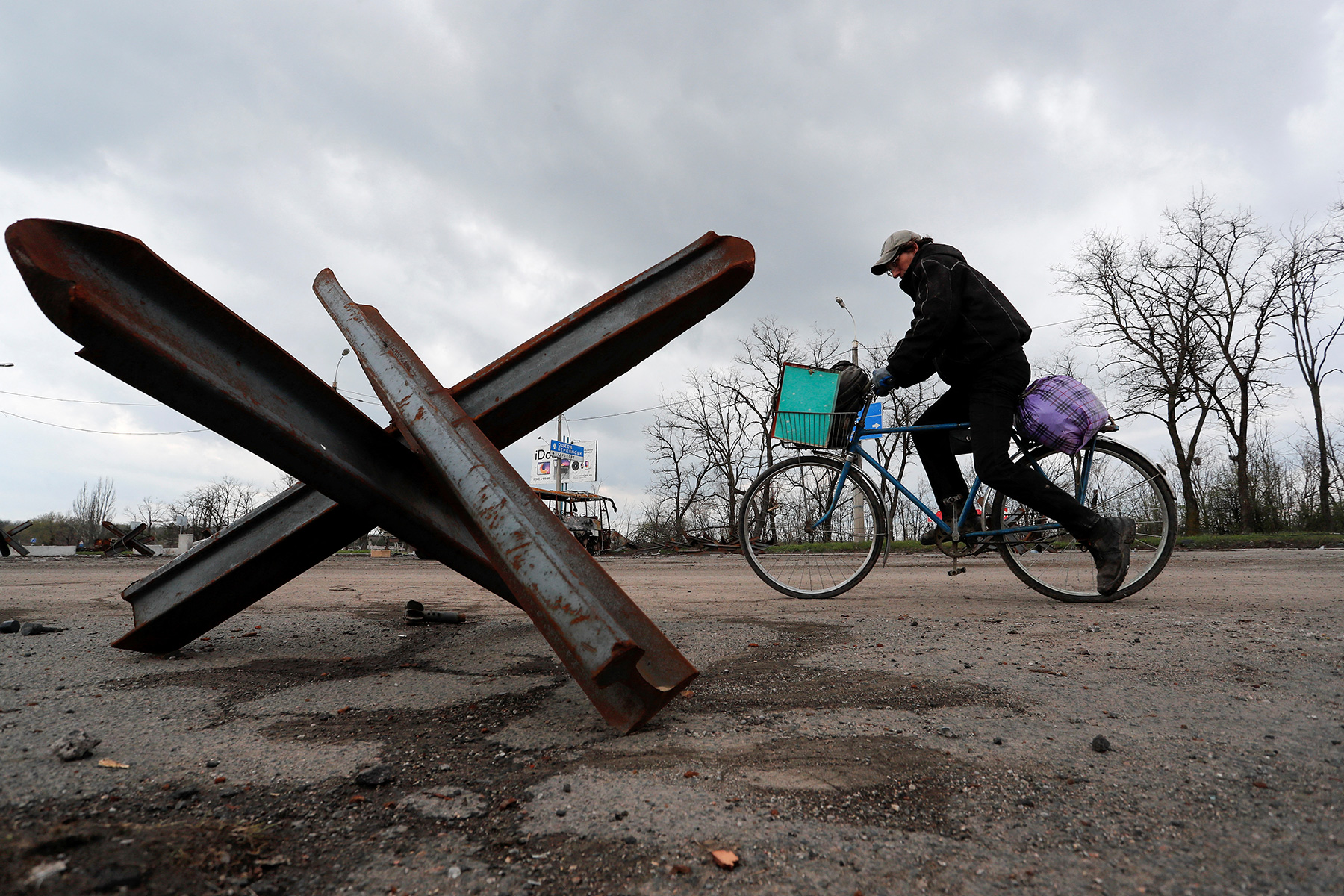There is a good chance that the U.S. will have to take a more flexible stance on the JCPOA and related issues, since time is working against Washington. The previous administration had vastly miscalculated the economic implications of the “maximum pressure campaign” it unilaterally imposed upon Iran. Trump’s administration in its typical manner believed that upon facing significant financial damage, the leadership in Teheran would choose to compromise rather than persist in its ambitions in the Middle East. Likewise, Washington seemed to believe that should the government insist on maintaining its policy despite the economic pressure, the country’s population would eventually overthrow the regime in Teheran or put enough domestic pressure on it to agree to certain concessions in the very least (although U.S. officials formally denied seeking a regime change in Iran).
However, this assumption proved to be completely disconnected from reality on the ground. Not only did Iran manage to hold the domestic unrest in check, but also the nation was very much capable of maintaining a functioning economy even under the “maximum pressure campaign”. Subsequently, the U.S. practically failed to force Iran to cave in through economic pressure, while lacking a feasible plan B to walk out of the crisis on acceptable terms. Right now, Washington is finding itself between a rock and a hard place as it can no longer expect the sanction regime to do the job and force Iran to make concessions, but the White House is still very reluctant to start even a limited military campaign in the Middle East to effectively destroy some of Iran’s nuclear capabilities.
Meanwhile, Teheran is not sitting idly. Instead, the country is gradually developing its nuclear potential, both increasing its weight in the Vienna negotiations and approaching the amount of radioactive resources it needs to create a nuclear weapon.
The general idea in Washington seems to be that Iran is not really planning to create a nuclear bomb, but rather uses its nuclear program as a bargaining chip in negotiations with the U.S. to extract more concessions. This might be true, but it is also a risk the world cannot afford to take.
The intentions of the leadership in Teheran might as well be completely opposite, especially in the light of the assassination of an Iranian general carried out by the U.S. in early 2020. That operation demonstrated Washington’s total disregard for its adversaries as long as they didn’t have nuclear weapons for a potential retaliation. Whence Iran could actually be embarking on a path to obtaining a nuclear weapon and prolonging the negotiations to be able to accumulate more radioactive materials to the point of becoming a nuclear threshold state. Therefore, it is crucial for the U.S. to reach some sort of agreement with Teheran as soon as possible in order to minimize the chances of Iran turning nuclear in the near future.
Biden’s inauguration as the 46th President of the United States promised not only a shift in U.S. domestic policies but also a return to Obama’s chapter in Washington’s foreign strategy. Biden’s victory in the 2020 elections was especially anticipated in Teheran, which had experienced years of relentless economic pressure by the previous administration in Washington. However, more than a year has passed since Biden arrived into the White House, but the JCPOA still lies on the verge of a complete collapse.
Despite experts remaining consistently optimistic about the ongoing negotiations in Vienna, few—if any—tangible results have been delivered so far. But, while the negotiations have more or less been stalled, the simultaneous advancement of Iran’s nuclear program has been very much active, approaching the milestone of accumulating enriched uranium enough for a functioning nuclear device with every passing week.
Therefore, the U.S. faces a dilemma as it has to decide just how many concessions it is ready to offer to Teheran to convince it that the JCPOA is worth another try. Iran, however, is not very inclined to soften the position of its own.
Time is not on Washington’s side
There is a good chance that the U.S. will have to take a more flexible stance on the JCPOA and related issues, since time is working against Washington. The previous administration had vastly miscalculated the economic implications of the “maximum pressure campaign” it unilaterally imposed upon Iran. Trump’s administration in its typical manner believed that upon facing significant financial damage, the leadership in Teheran would choose to compromise rather than persist in its ambitions in the Middle East. Likewise, Washington seemed to believe that should the government insist on maintaining its policy despite the economic pressure, the country’s population would eventually overthrow the regime in Teheran or put enough domestic pressure on it to agree to certain concessions in the very least (although U.S. officials formally denied seeking a regime change in Iran).
However, this assumption proved to be completely disconnected from reality on the ground. Not only did Iran manage to hold the domestic unrest in check, but also the nation was very much capable of maintaining a functioning economy even under the “maximum pressure campaign”. Subsequently, the U.S. practically failed to force Iran to cave in through economic pressure, while lacking a feasible plan B to walk out of the crisis on acceptable terms. Right now, Washington is finding itself between a rock and a hard place as it can no longer expect the sanction regime to do the job and force Iran to make concessions, but the White House is still very reluctant to start even a limited military campaign in the Middle East to effectively destroy some of Iran’s nuclear capabilities.
Meanwhile, Teheran is not sitting idly. Instead, the country is gradually developing its nuclear potential, both increasing its weight in the Vienna negotiations and approaching the amount of radioactive resources it needs to create a nuclear weapon. As of May 2022, the U.S. continues to refuse to look at the situation realistically and seems determined to force Teheran to withdraw some of its demands. Eventually, however, Biden will have to see that the situation is hardly developing in his favour, and the current political climate in the world is only making it easier for Iran to continue standing its ground.
Dealing with Iran in the shadow of the Ukrainian crisis
The prospects of the JCPOA’s salvation are largely informed by the current crisis in Ukraine, which can both complicate and accelerate the renegotiation of the nuclear deal. For the U.S., the developing conflict has become the primary concern in its foreign policy, forcing Washington to pay less attention to both Teheran and Beijing. Washington’s most burning objectives are currently twofold—curtailing Moscow’s economic power as much as possible and ensuring Ukraine manages to preserve its sovereignty. Both are hugely dependent on the U.S. ability to manipulate the world petroleum prices and the amount of Russia’s oil and gas exports.
Economic pressure on Moscow is (among other factors) largely sustained by the prices of gas and oil, whose export is a crucial component of Russia’s economy. Therefore, one of Washington’s primary efforts is centered around minimizing the amount of petroleum Moscow can offer to the global market, while lowering the oil prices simultaneously, which had recently experienced an abrupt surge.
While there are several ways of doing that, Iran probably offers the most straightforward option. Should the JCPOA become a reality again in its 2015 form and the sanctions on Teheran’s resources be lifted, the world market will receive a substantial influx of Iran’s resources. As a result, even if the amounts of petroleum Moscow sells worldwide remains roughly the same, it will not be able to receive the same revenue due to the global price changes. Of course, it is hard to expect this to happen swiftly—even if the parties reach an agreement on the nuclear issue in the near future, it will still take some time to reintegrate Iran back into the world petroleum market. However, the market is quick to react to such developments, and the shift in oil prices could very well occur much sooner than the actual transfer of resources.
Moreover, the huge reserves of gas and oil Iran boasts of can become a viable alternative for the EU countries, many of which are having doubts about the prospects of importing petroleum from Russia and are actively looking for other sources. Thus, the demand of the EU countries could potentially be met with the offer of the Islamic Republic, which is very eager to find new partners it could sell its oil and gas to. Prior to the imposition of the sanction regime by the U.S., Iran enjoyed a number of trading partners—both in the EU and in the Middle East—that are looking forward to diversifying their gas and oil supply by trading with Teheran. The only thing they need is the lifting of the sanctions by Washington. This could fractionally offset the damage done by the partial stop of the petroleum delivery to the EU countries from Russia as well as accommodate their aim of gradually decreasing their reliance on Russia’s gas and oil.
JCPOA or war
Moreover, the ongoing conflict significantly decreases the amount of options Washington has in dealing with Teheran and its nuclear program. Should they fail to reach compromise in the coming months, Iran could very well set its cause on developing a full-blown nuclear weapon as fast as possible. In that case, the U.S. will have two options only—either let it happen, essentially triggering another regional (or even global) crisis of nuclear proliferation, or opt for a military operation against the country’s nuclear facilities. However, a limited military operation is almost impossible to imagine: To effectively curtail nuclear developments in Iran, the U.S. and their allies would have to conduct a full-scale campaign involving the use of aircraft and missile strikes.
In this scenario, the conflict is unlikely to stay solely within Iran’s borders, but will almost inevitable spill over to the entirety of the Middle East with largely unpredictable consequences. Such a war would not only constitute a giant burden to everybody involved but will also spark a financial crisis for the entire world. Needless to say, the U.S. fully understands this and is not likely to engage in direct warfare against Iran even as a last resort to prevent it from acquiring a nuclear weapon. America’s resources and attention being held up in Ukraine right now only complicates the prospects of Washington undertaking any military action in the Middle East.
However, one should mention that there is a possibility of the U.S. being dragged into the conflict against its own will. Israel views Iran as an existential threat, and the development of a nuclear weapon in the Islamic Republic is a redline many believe Tel Aviv will not let Teheran cross. Seeing that the country is dangerously close to accumulating enough radioactive materials for a bomb, Israel might opt to carry out several military strikes against Iran’s nuclear infrastructure or try to sabotage it in another way. This in turn will force Teheran to respond, sparkling a regional conflict the U.S. will have to become a part of in one way or another.
However, this scenario is much less likely to happen today than it was a year or two ago. Both Israel and the U.S. have gone through a change of leadership, and their bilateral ties as well as foreign policies are not the same they were before the 2020 elections. With Netanyahu leaving office, Tel Aviv is no longer as radical in its policies against Iran and is far more reluctant to use a military option of curtailing Iran’s nuclear program. Likewise, Biden’s perception of Israel’s role among the U.S. allies has experienced a negative change as well and Washington is no longer bound to support Tel Aviv in any military campaign it decides to embark upon against the Islamic Republic. Israel has a clear understanding of this and is unlikely to regard a war against Iran as a favourable option.
Who will have to take responsibility?
Another point for the U.S. to consider are the implications of the complete failure of the JCPOA and its consequences to Biden and, more importantly, to the Democratic Party. While it is true that the collapse of the deal should mostly be attributed to Trump’s administration, since it was their strategy to renegotiate the deal, today the responsibility largely lies with the Democratic Party. Biden’s election campaign promises included the salvation of the JCPOA, which is not as imminent now as it used to be a year ago. Besides, should any kind of conflict take place between the U.S. and the Islamic Republic, it will almost certainly be blamed on Biden’s administration and their failure to find a compromise with Teheran, even despite the previous administration creating the conditions for such failure.
The Democrats are already standing in for a lot of criticism for their domestic and foreign policies, with the current crisis in Ukraine set to only complicate both. The revival of the JCPOA at least in some form that would prevent Iran from acquiring a nuclear weapon is likely to be presented to the public as a huge political victory that has made it possible to avoid another catastrophic conflict in the Middle East. Failing to achieve this will be a significant setback for Democrats’ chances of winning the 2022 and 2024 elections. All the consequences of this fiasco will be attributed to them, and if Iran manages to construct a nuclear weapon, the Republicans will use it as a talking point in proving their aggressive strategy against Teheran to be the only possible way of dealing with it. Thus, reanimating the nuclear deal is crucial for the Biden administration even if it will eventually have to make some painful concessions.
The ball is still in Washington’s court
Despite the situation getting more and more urgent with every passing week, the U.S. still looks reluctant to make more concessions to Teheran. For Washington giving in to any new significant demands would be catastrophic mainly from the political point of view. Delisting IRGC as a terrorist organization is more of a symbolical move that is not very likely to significantly empower the militant organization. Likewise, accepting Iran’s quest of revenge for the death of Soleimani, Iran’s assassinated top general, probably won’t take the shape of any real moves against the U.S. on Iran’s part. Teheran simply cannot afford to give up on their promise of retaliation since that would be a political suicide. However, it is very unlikely they will ever actually attempt what they threaten.
Nevertheless, conceding to either will be a huge blow to Biden and his administration from the political perspective—both the general population and many Congressmen will accuse the White house of being too weak in dealing with Iran to the point of agreeing to delist a terrorist group just to appease Teheran. That is a price Biden is not yet willing to pay, hoping Teheran will eventually drop some of the demands and allow him to save face. This hesitation, however, can cost the world dearly, since the ball is currently in the U.S. court with Biden refusing to acknowledge it.
The general idea in Washington seems to be that Iran is not really planning to create a nuclear bomb, but rather uses its nuclear program as a bargaining chip in negotiations with the U.S. to extract more concessions. This might be true, but it is also a risk the world cannot afford to take.
The intentions of the leadership in Teheran might as well be completely opposite, especially in the light of the assassination of an Iranian general carried out by the U.S. in early 2020. That operation demonstrated Washington’s total disregard for its adversaries as long as they didn’t have nuclear weapons for a potential retaliation. Whence Iran could actually be embarking on a path to obtaining a nuclear weapon and prolonging the negotiations to be able to accumulate more radioactive materials to the point of becoming a nuclear threshold state. Therefore, it is crucial for the U.S. to reach some sort of agreement with Teheran as soon as possible in order to minimize the chances of Iran turning nuclear in the near future.
Since the strategy pushing Iran to drop some of its demands is apparently not working, agreeing to some symbolic, although politically painful concessions, might be the only way for the U.S. to make sure the Islamic Republic does not acquire a nuclear weapon. While being far from what Washington had initially expected, this would answer the main concern the world has today about Iran—prevent it from going nuclear. This will not be an ideal agreement, but Washington has to set its priorities straight. The risk of Iran acquiring nuclear weapons should overrule most other concerns of the U.S. regarding the Islamic Republic and its policies.








